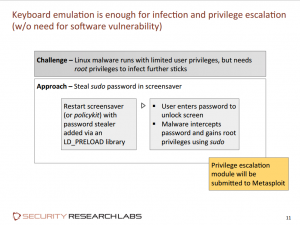I’ve spent my time in the tech support trenches…and someone else’s time as well. Please mark my dues paid in full. I’ve worked from the script-reader doing basic trouble-shooting, up to floor supervisor and level three support. My point? Not everybody who works support at a call center is an idiot, but some certainly are…
Since 2005, I have helped financially-disadvantaged kids get computers in their homes. While it’s become a cliché in the past few years, the “digital divide” most certainly exists. Since our early days of Komputers4Kids, The HeliOS Project and now Reglue, the gap between the tech haves and have-nots remains a problem.
 Way more than many of us would think.
Way more than many of us would think.
With that being established, I want to take a walk down memory lane…to let’s say 2005.
Back then, getting a Linux computer bolted-up to broadband internet was straight forward. Even nine years ago, the biggest challenge to getting Time Warner or eternal-hell-and-damnation Comcast routers online might have been to reboot the router.
Maybe. The majority of the time, not even that.
So imagine my surprise when I wasn’t able to get one of our established Reglue kids online. The oldest boy, Rex, had been using his Reglue computer for four years and it was time for an upgrade. I was working with a brand new Time Warner modem and wireless router, out of the box. I even went back in and made sure I was accessing the modem properly. I was. This task shouldn’t have taken ten minutes and I was now on minute thirty.
Ken Starks is the founder of the Helios Project and Reglue, which for 20 years provided refurbished older computers running Linux to disadvantaged school kids, as well as providing digital help for senior citizens, in the Austin, Texas area. He was a columnist for FOSS Force from 2013-2016, and remains part of our family. Follow him on Twitter: @Reglue







 It’s hard to remember that it wasn’t that long ago that we only had a couple of choices to meet our computing needs. As recently as 2007, the year before Obama was elected, someone looking for a new computer basically could choose between a desktop or a laptop. In mobile, Research In Motion offered the Blackberry, which candidate Obama was famous for using — and still uses.
It’s hard to remember that it wasn’t that long ago that we only had a couple of choices to meet our computing needs. As recently as 2007, the year before Obama was elected, someone looking for a new computer basically could choose between a desktop or a laptop. In mobile, Research In Motion offered the Blackberry, which candidate Obama was famous for using — and still uses.
 Upon arrival, I met the gentleman who had called, as well as his business partner. The plan had changed since we talked the day before. What they wanted was one computer test machine, dual booted with Linux. They would use that computer, rotating their employees weekly to gather their responses and opinions.
Upon arrival, I met the gentleman who had called, as well as his business partner. The plan had changed since we talked the day before. What they wanted was one computer test machine, dual booted with Linux. They would use that computer, rotating their employees weekly to gather their responses and opinions.

